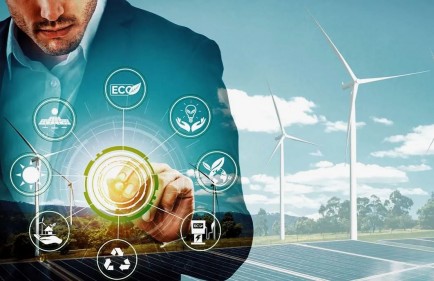Господдержка предприятий-производителей строительных материалов

Dear colleagues!
 With this note, we, the team of the Committee on Energy Efficient Technologies of the Association "StekloSouz" of Russia (SSR), begin a series of materials devoted to issues related to the energy supply of glass industry enterprises.
With this note, we, the team of the Committee on Energy Efficient Technologies of the Association "StekloSouz" of Russia (SSR), begin a series of materials devoted to issues related to the energy supply of glass industry enterprises.
Often, when determining the factors affecting the quality of manufactured products, key indicators of manufacturing enterprises - total downtime, profitability, repair and service costs, investment costs in capital equipment - energy supply issues are relegated to the background. This is fundamentally wrong. Energy is the circulatory system of modern production, especially such a technological and resource-intensive one as glass production. After all, this area is characterized by a high degree of automation, the presence of high-precision intelligent equipment sensitive to the quality of electricity, continuous production cycles.
Our country received a great legacy from the Soviet Union - an energy system that allows us to maintain and develop industrial production decades later. However, as technology becomes more complex and power consumption increases, the load on the infrastructure grows, which leads to the emergence of new problems, the consequences of which are emergency shutdowns, equipment failure, increased product defects, downtime - ultimately, under-produced products and lost profits.
Of course, the obsolescence of the infrastructure (it is no secret that not all regions of the country and not in the required volumes managed to allocate funds for the modernization of the grid), the emerging power deficit are very serious challenges for the glass industry. But, unfortunately, this is not a complete list of problems.
Modern equipment places high demands on the quality of electrical energy, and many previously "invisible" deviations become critical. Particularly unpleasant is the fact that some of the emerging problems are not regulated by current standards, are not reflected in the standard reports of grid organizations, and lead to colossal losses. For example, many power engineers use the new term "blinker" (a deep (from 30 to 100% of the nominal value) but short-term (up to 1 - 1.5 s) voltage drop in the network, which usually occurs when automatic devices are triggered in 110 and 220 kV networks), the occurrence of which leads to the disconnection of sensitive equipment not protected by special devices. However, in accordance with GOST 32144-2013 "Norms and quality of electrical energy in general-purpose power supply systems", this phenomenon is not a violation of the quality of electrical energy, and therefore is a problem exclusively for the energy service of the enterprise. On the other hand, the same equipment is often the cause of undesirable phenomena. Thus, if there are a large number of loads in the power supply system equipped with rectifiers, frequency drives, robotic lines, etc., serious non-sinusoidal components of currents and voltages arise. The situation can be aggravated by the presence of significant reactive power, the compensation of which under the influence of higher harmonics of the current is very difficult.
Unfortunately, the trends are such that the number of problems increases exponentially over time. The unified energy system begins to fail, the number of emergency shutdowns and switching increases. Working with high-tech equipment requires a different approach to solving issues related to the power supply of industrial enterprises.
In a series of materials in the Glass Energy section, the Committee on Energy Efficient Technologies of the USSR, together with its partners - the engineering company RiMtekhenergo (Novosibirsk), sets the task: to study existing problems, select modern technological ways to overcome them and turn them into growth factors, and also develop a new approach to issues of support and maintenance of industrial electrical equipment, design of new enterprises.
 Contact person: Chairman of the Committee on Energy Efficient Technologies of the SSR
Contact person: Chairman of the Committee on Energy Efficient Technologies of the SSR
Neustroev Alexander
tel.: +7 915-105-99-71, e-mail: energocom@steklosouz.ru
 Publications on this topic:
Publications on this topic: